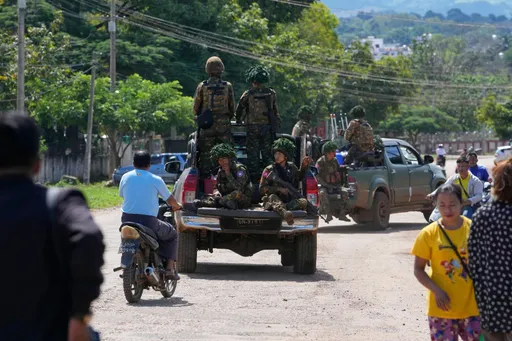UK nurses have staged a second unprecedented strike amid an increasingly acrimonious fight with the government for better wages and warnings that patient safety could be jeopardised.
Up to 100,000 members of the Royal College of Nursing (RCN) in England, Wales and Northern Ireland are holding the latest one-day stoppage Tuesday after walking out last Thursday for the first time in the union's 106-year history.
They are demanding an inflation-busting pay increase to make up for years of real-terms salary cuts, but the government insists recession-hit Britain cannot afford anything above a roughly 4-5 percent rise.
"We need more money, we need more staff, we need patient safety," said Lucy Savage, 21, on a picket line outside Aintree University Hospital in the northwestern city of Liverpool.
"We're overworked and underpaid, the National Health Service (NHS) is just a shambles."
Suni George, 45, said his pay had hardly changed in his 17 years working as a nurse.
"We get a lot of tax so even when the annual income looks like it's gone up, we don't have more money," he said outside the same hospital.
Decades-high inflation
The striking nurses are just some of numerous UK public and private sector workers taking industrial action over pay and working conditions, as they grapple with a cost-of-living crisis worsened by decades-high inflation.
The UK consumer prices index is currently running at nearly 11 percent.
Ambulance workers, including paramedics and call handlers, are set to strike on Wednesday.
'Unaffordable', the RCN has criticised Prime Minister Rishi Sunak's government for refusing to discuss pay as part of stalled negotiations.
RCN chief Pat Cullen said nurses would take wider industrial action next month if the dispute was not resolved.
"If this government keeps giving our nursing staff the cold shoulder as they have to date then, it's really unfortunate, that come January, we will see more hospitals being involved and striking and that means more nursing staff involved," she said.
'Challenging times'
"The RCN's demands are unaffordable during these challenging times and would take money away from frontline services while they are still recovering from the impact of the pandemic," said Health Secretary Steve Barclay.
The government-appointed independent pay review body, comprised of economists and human resources experts, urged hiking healthcare sector pay at least £1,400 ($1,740) on top of a 3.0 percent increase last year.
On the eve of the nurses' latest strike, he insisted the government has adopted a "responsible and fair approach" to public sector pay.
"When it comes to pay, it's because these things are difficult that we have an independent process," Barclay said while on a visit to Latvia.
READ MORE: Thousands of UK nurses on day-long strike for better wages























